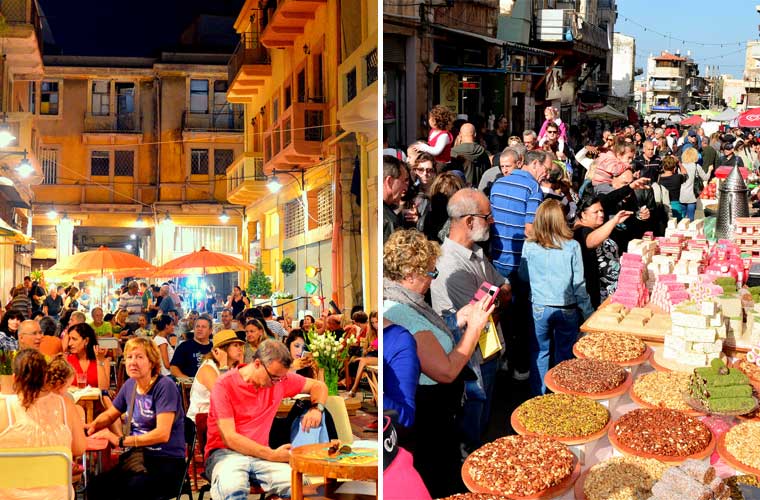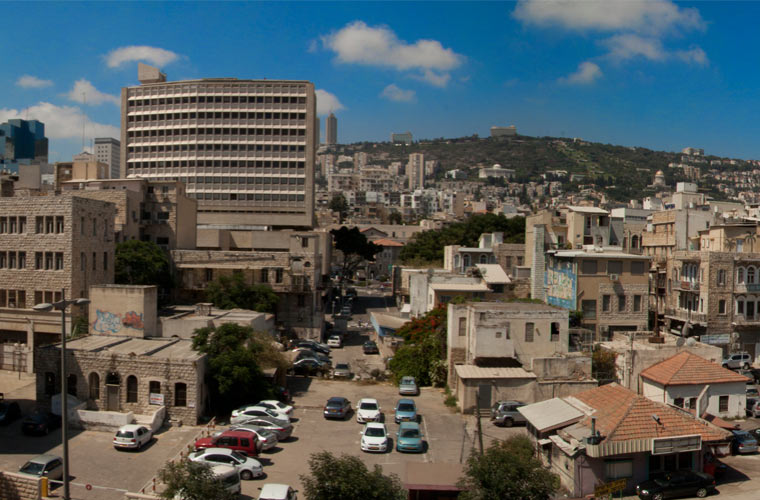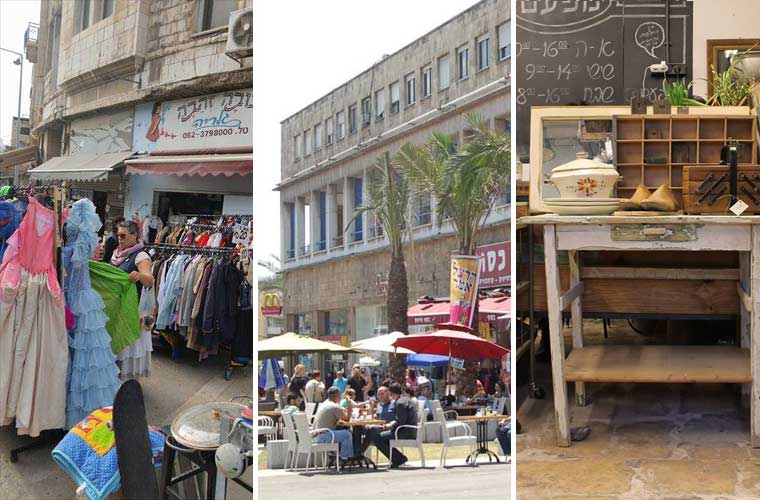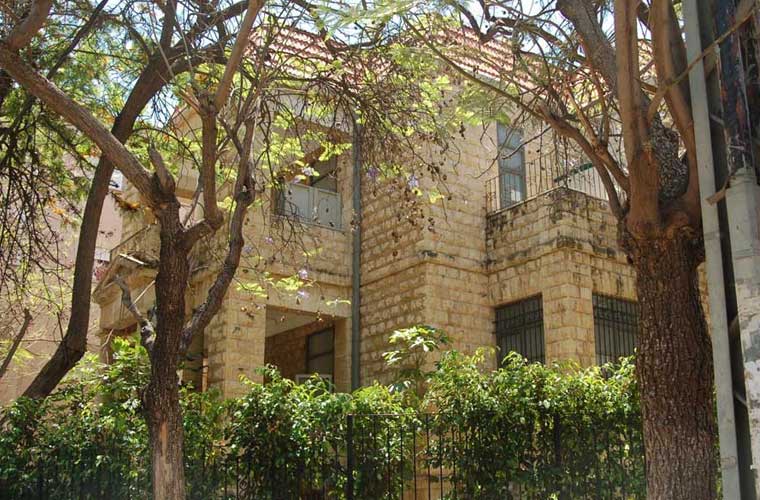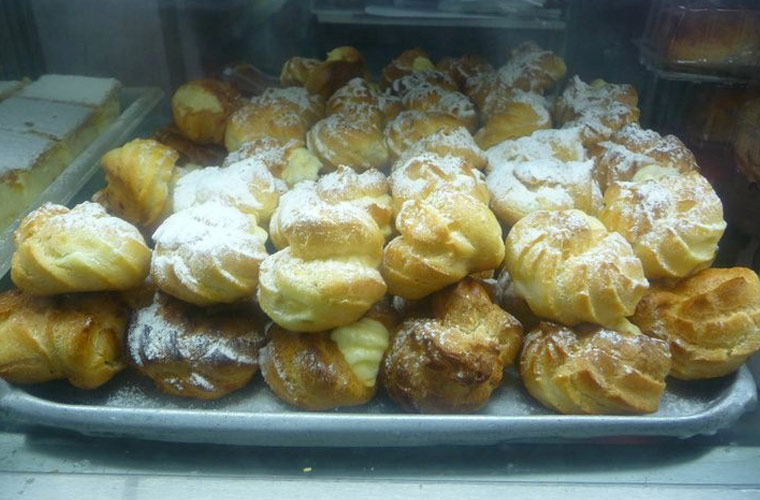Haifa for Vintage lovers
Dan Magazine 29/03/2016
Characterized by a somewhat dated style, quite a few joyful surprises are in store for vintage lovers in Haifa’s downtown, which is awaiting bargain hunters and connoisseurs. If you are fond of the vintage style, you should devote a day to stroll and rummage about in Haifa.
A morning of vintage chic in chic
Follow the example of professional bargain hunters and make an effort to get to the Haifa Flea Market early in the morning. The market is crammed with stands and stores showcasing clothes, shoes, furniture and home utensils.
Located downtown, the market spreads across Wadi Salib, Kibbutz Galuyot and the corner of Shivat Zion. The regular stores operate all week long; but on Saturdays and Sundays dozens of peddlers flock to display a variety of commodities and furniture that meet every taste and budget: a grand chandelier, an ancient piano, a European escritoire, vinyl records and thousands of other items with sentimental and historical value. Design lovers could, with a little persistence, find real bargains here.
Unique items are also abundant in the market’s stores. Mipaam (“from days past”) is open on Saturdays as well. The store houses a designed display of authentic antiques – drawer cabinets, side tables, baskets and jars, special vases and even wooded shutters taken from old buildings.
Click here to reserve a room in Dan Carmel hotel in Haifa >>
If you haven’t found what you were looking for, take a peek at Buba Zehava (Zehava the doll) – a store with periodic costumes, dolls and other novelties.
A Nostalgic Lunch
On Kibbutz Galuyot Street you can also satisfy your appetite for old-time flavors in Yunek’s restaurant. This Romanian restaurant has been running for over sixty years now, and still preserves the same cuisine and the same atmosphere. The restaurant opened in 1948 as an ice-cream manufacturing workshop, and pretty soon the food came along. What’s on the menu? Traditional calf’s Foot jelly, Romanian mixed grill and Patricien– an authentic, juicy Romanian sausage.
Heading west on Natazon Street – near Paris Square – there are a number of vintage and designer shops, as well as quite a few pubs (where you can wrap-up your day in case you’re doing an upside-down tour – from uptown Hadar Hacarmel towards the beach).
European style in Hadar Hacarmel
In Hadar Hacarmel, encounter the grand architectural style of the beginning of the Twentieth Century. The neighborhood is a match to Tel Aviv in terms of buildings in the International Style and Bauhaus. In the past Hadar was home to scientists, doctors and leading industrialists who were drawn to Hadar because of the Technion building (inaugurated in 1913), which would later become the science museum. The grand structure on Nordau Street and other buildings in the neighborhood were planned by the renowned German Jewish architect Alexander Baerwald.
Itin House, on the corner of Shmaryahu Levin and Ben Shemen is worth a second look. The house was built as a hospital in the grand eclectic style.
It is a little difficult to picture, but Nordau Street was once an elegant pedestrian zone with ice-cream shops and cafés, and Herzl and HaHalutz streets were packed with high-end boutiques. The houses here are more modern, with characteristically straight, clean lines and large balconies. Don’t miss a peek at 41 Herzl Street, Ora Cinema, it’s been decorated with velvet curtains and massive chandeliers. House 27 was Hadar’s first office building, and was titled the Clock House. Right across the street on 18 Herzl Street, stands another aged office building, Beit HaKranot (built 1939).
Gaze up and take a look at the round-cornered building’s special façade, overlooking the Herzl and Arlosoroff intersection, which sadly is much neglected nowadays.
Strolling around Jerusalem Street reveals many special houses in the Arabic and International styles – as well as a combination of both. Take a look at houses number 8 and 24. House number 28 had been built for the Zionist leader Ussishkin (who eventually settled down in the Rehavia neighborhood in Jerusalem). House number 15 was home to Haifa’s mythological mayor, Abba Hushi.
At the corner of Arlosoroff and Frishman you will find the perfect place for a coffee break: The Leibel Confectionery. The place has been running since 1970, offering Viennese style desserts. Here you can sit around laminated tables and relish on delicious yeast cakes baked early in the morning, tall cheese cakes, cream puffs and a range of heart filling pastries.
Hunting for bargains, travelling back in time
The Second Hand Chic shop on 36 Yosef Street, known also as Shlomy’s Shop, offers jerseys, periodic jewelry and masses of clutch bags. Right next to it, at number 34, Sleek also stores an infinite array of second hand goods, clothes and house utensils.
Next to Yosef Street is the coolest street in the neighborhood, and perhaps in the whole of Haifa – Masada Street. In recent years Masada was transformed into a hub for young people, students and artists. Masada exhibits the coexistence that stems from values shared by young people in places like Berlin and New York – good music, a spirit of renewal and café culture. At the center of the street there is an underground station, and everything together gives a sense of travelling back in time to the 1990s in Shenkin Street, Tel Aviv. In house number 34, among a tattoo studio, a sushi place and a few art galleries, you can also find Osaphim Nadine (Nadine’s Collections) that was formerly located in Ein Hod. Nadine collects, amends and sells trendy second hand clothes and accessories.
Climbing up from Hadar to the Carmel Center, Derech Hayam and Hanasi Streets display many buildings in the International style: house number 99 on Derech Hayam Street was built in 1936 in the Bauhaus style and exhibits unique periodic details, such as the square façade windows and the minimalist handrail in the stairwell.
If you still feel like shopping, on 5 Derech Hayam Street, right next to the Gan HaEm Carmelit station is Aniche’s vintage shop. In Buddhism, Aniche means constant change – everything comes and goes. This principle, as we know, applies to fashion as well. The shop’s owner, Shoshi, is an expert on the subject. In Aniche you’ll find original periodic pieces – as well as branded bargains – a wide range of jerseys, denim, jewelry and accessories.

